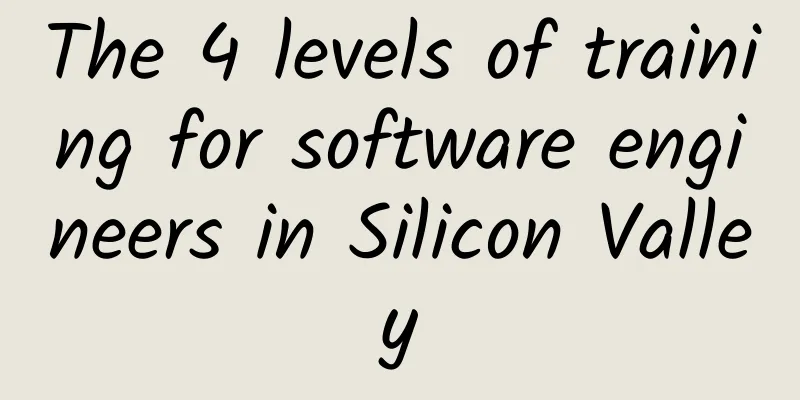Exposing the blackmail of 21st Century News: illegally collecting hundreds of millions of yuan in protection fees

|
"The media is a kind of public power. If those who use it have bad intentions, the harm it causes will be unimaginable. If this continues, we will not only fail to be the promoters of social progress, but will instead become the destroyers of values." On September 7, Liu Dong, the president of 21st Century Network, who was suspected of committing a crime, confessed in a detention facility of the Shanghai Public Security Bureau. The Mid-Autumn Festival is just one day away, but he is destined to be unable to be with his family on this night of family reunion this year. In recent days, the 21st Century Network case of suspected serious economic crimes, which has attracted great public attention, continues to ferment in public opinion. Why did this case come into the police's attention? What is the latest progress? What kind of dark secrets will be revealed? As the investigation gradually deepens, will it cause a bigger storm? With these questions of public concern, Xinhua News Agency reporters went deep into the special case team and interviewed some of the suspects and the police officers handling the case. The case was shocking and thought-provoking. "Advertising fees" are actually "protection fees" suspected of illegally making hundreds of millions of yuan in profits On the evening of September 3, the Shanghai Municipal Public Security Bureau reported a piece of news that was like a bombshell to many people, causing a huge stir. "The Shanghai Public Security Bureau recently cracked a major news extortion case. Eight suspects, including the editor-in-chief of 21st Century Network and related management, editing and operation personnel, as well as the heads of two public relations companies, Shanghai Runyan and Shenzhen Xinqilin, were taken into criminal compulsory measures in accordance with the law. The case involved dozens of companies in Shanghai, Beijing, Guangdong and other provinces and cities." The day after the news was announced, discussion about "paid silence" in the financial news industry spread online. Some people bluntly said: "Paid silence" is an open secret in the industry. If investigated, it can be prosecuted. It is only a matter of time before they are investigated. Some people also asked: Why did 21st Century Network get into trouble this time? The reporter learned that 21st Century Network came into the public security authorities' attention due to reports from some companies and individuals. The confessions of several suspects showed that there were "too many" companies that were allegedly blackmailed by 21st Century Network, and only a small number of them came forward to report it. The criminal suspect, Liu Dong, deputy editor-in-chief of 21st Century Business Herald and president of 21st Century Network, introduced that 21st Century Network was originally the online electronic version of 21st Century Business Herald. In 2010, for development considerations, the newspaper management decided to let 21st Century Network operate independently and have independent accounting, with Liu Dong as the person in charge. "Our strategy was to use the influence of newspapers to quickly copy the news model of newspapers and publish original and in-depth negative reports to attract the attention of companies that are planning to go public or have already gone public," said Liu Dong. At that time, domestic companies were going public in large numbers at an average rate of several or even dozens of companies per day, which provided a huge profit space for some financial media. Liu Dong recruited people from all over the place and made a clear division of labor - the criminal suspect, 21st Century Network editor-in-chief Zhou Bin, was responsible for news editing; the criminal suspect, 21st Century Network deputy general manager of the advertising department Mo Baoquan and others were responsible for the advertising business and negotiated "cooperation" matters with enterprises. The task force found out that 21st Century Network used methods such as soliciting and introducing by public relations companies and selecting and screening by industry journalists to find listed companies or well-known companies with themes such as "listing", "planning to go public", "restructuring" and "transformation" as "target" objects. For companies willing to "cooperate", after charging high fees, they would make "positive reports" by exaggerating positive facts or covering up negative issues; for companies that did not cooperate with them, they would publish negative reports on platforms such as 21st Century Network to threaten companies to place advertisements or sign cooperation agreements, and units and individuals would obtain high advertising fees or benefits from this. In accordance with Liu Dong's instructions, Zhou Bin organized topic selection meetings every week, selected companies that had not established a "cooperative" relationship with 21st Century Network as reporting subjects, and wrote negative reports to be published on 21st Century Network; if it involved major or sensitive topics, it would be reported to Liu Dong for approval. "After negative reports come out, the companies reported will come to us on their own initiative, or contact us through public relations companies to discuss cooperation, usually in the form of advertising contracts, and the fees are roughly between 200,000 and 300,000 yuan." Zhou Bin confessed that once the "advertising contract" is signed, he will notify the editorial department to delete the relevant negative reports on the Internet. "In fact, companies that are negatively reported do not need to place advertisements on 21st Century Network." Liu Dong said that this is a fee that companies are forced to pay in order to keep the peace, which can also be called "protection money" or "paying respects to the mountain." So, why do so many companies choose to keep quiet and pay the "protection fee" obediently? "When a company goes public, it will gain huge economic benefits. However, if negative news about the company appears in the media during the process of preparing for the listing, the company's listing will be stranded, or it may be investigated by the China Securities Regulatory Commission and disqualified from listing. Therefore, before going public, a company will maintain a positive image at all costs and must not allow negative reports to appear, regardless of whether the reports are true or not." Liu Dong admitted that for listed companies, negative reports will also affect their operations or cause their stock prices to fall. The suspect, 21st Century Network reporter Wang Zhuoming, said that using negative reports to blackmail companies is an unspoken rule in the industry. "This is also a collective behavior, and everyone in the company does this." Liu Dong's confession also confirmed this. He confessed that one of the requirements of the newspaper management's performance evaluation of 21st Century Network was to cover 70% to 75% of the newly listed companies of the year and sign "advertising contracts" with them, with an annual target of tens of millions of yuan. He also asked Zhou Bin and Mo Baoquan to maximize their interests in their work. "After signing the contract, we will hand over the list of these companies to the editorial department and ask them not to write negative news about these companies." Liu Dong said that if some reporters still "accidentally" report on some of these companies, under the company's "crisis public relations", for companies with long-term contracts and good relationships, the articles will be withdrawn immediately; for companies with average relationships and short-term contracts, the other party will be asked to increase advertising fees or extend the advertising period. Yunnan enterprise Xiangyun Feilong encountered a similar situation. In June 2014, 21st Century Network reporter Zhu Yimin conducted a secret interview with Xiangyun Feilong for a month and wrote a negative report to be published online. "They called the top management of Xiangyun Feilong and sent them an interview outline. Xiangyun Feilong is a client of my company and had previously signed a 300,000 yuan cooperation agreement with 21st Century Network, but they still wrote a negative report," said Xing Da, the suspect and head of Shenzhen Xinqilin Company. "The senior management of Xiangyun Feilong was very angry and asked me to help with the public relations of 21st Century Network. I found Liu Dong and Zhou Bin at that time, but they said there was nothing they could do and they would not withdraw it easily. Liu Dong asked me to discuss it with Mo Baoquan from the advertising department." Xing Da said. After Xing Da found Mo Baoquan, the other party gave him a condition - "the client (Xiangyun Feilong) must re-sign a three-year advertising contract with them for a total of 1 million yuan, and the first year's money must be paid as soon as possible, so that Zhu Yimin's article can be removed from the Internet." Xing Da confessed that Xiangyun Feilong was going public through a backdoor listing at the time, and in order to maintain the corporate image, the top management had to agree to pay the fee. According to Liu Dong's confession, a portion of the advertising fees of 21st Century Network was reserved as the "Editor-in-Chief Fund." Reporters whose articles were withdrawn would receive extra points for the assessment, and at the end of the year, different amounts of bonuses would be given out based on the scores of each reporter as compensation for the withdrawal of the article. According to preliminary investigation by the task force, from 2010 to date, 21st Century Network has signed "advertising contracts" with an average of more than 100 prospective and listed companies each year, collecting cumulative fees of more than hundreds of millions of yuan. Financial public relations plays the role of black money brokers and the criminal chain is becoming increasingly industrialized Shanghai Runyan and Shenzhen Xinqilin, which were involved in this case, are both leading financial public relations companies in the industry. The police officers handling the case said that in the process of 21st Century Network wantonly collecting "protection fees", the financial public relations companies colluded with it and made huge profits. The suspect, Lian Chunhui, the chairman of Shanghai Runyan Company, is the founder of the company. She said that as a senior practitioner, she had witnessed the origin, development and decline of the financial media public relations industry. "In 2005, A-share listed companies entered the equity split reform. From this time on, some 'foresighted' media began to explore the 'cooperation' model of threatening with negative reports." Lian Chunhui recalled that listed companies began to pay attention to media pressure, and many companies had to spend money to avoid disaster. This model took shape; in the subsequent peak period of corporate listings, more media rushed to imitate and directly copy it, showing a trend of large-scale expansion. Lian Chunhui was also impressed by the change in the attitude of listed companies towards the media. Since 2009, when she went to bid for clients of companies that were planning to go public, the first question they asked was: "How is your relationship with the media? Can you eliminate negative news?" "That is to say, companies planning to go public have already replaced roadshows with media work as their most important public relations need," Lian Chunhui confessed. Since 2010, the chaos in the financial media public relations industry has become increasingly serious. All first-tier financial media have joined in, and second- and third-tier financial media have also blossomed, all wanting to get a piece of the pie. If a company does not inform various media outlets of its "cooperation" intentions, it will basically be difficult to avoid negative reports. The chaos does not end there. The task force found that in order to maintain a closer cooperative relationship, financial public relations companies such as Shanghai Runyan and Shenzhen Xinqilin would also "publicize" some of the 21st Century Network's senior executives, using methods such as entertaining them, giving them gifts, and suspected bribery, with the amount ranging from hundreds of thousands to millions of yuan. Under the temptation of huge profits, some 21st Century Network staff members privately set up public relations companies and unscrupulously carried out news blackmail. Some people were suspected of insider trading, deliberately using negative reports to cause the stock prices of related companies to fall, and then short-selling them in large quantities to obtain huge profits. "This distorted transaction continues to grow and has become a major market cancer in reality. Listed companies are both afraid and helpless about this media environment. They have no choice but to 'cooperate' and are basically kidnapped," said Lian Chunhui. However, this media environment has become a breeding ground for "mutual benefit" and illegal profiteering between financial public relations companies and financial media. The criminal suspect, Tao Kai, executive director of Shanghai Runyan Company, confessed that since 2009, Runyan Company has begun to cooperate with financial media, facilitating corporate clients to sign "advertising contracts" with the media in exchange for the media's less reporting or no reporting of negative news about corporate clients, the so-called "media protection", "paid silence" or "paid ignorance". "In fact, we have become accomplices of these media in collecting 'protection fees'," said Tao Kai. Liu Dong also mentioned in his confession: "In order to prevent us from reporting negative news about companies, financial public relations companies would look for companies that are about to go public and sign advertising contracts with them in advance to 'pay respects' to us, so that we would keep quiet." "The way for financial PR companies to survive is to have the best of both worlds." The police officer handling the case said that for listed companies, they may ask for something from them out of fear of negative news reports; for financial media, if they have a good cooperative relationship, they can also expand the source of "advertisers". Especially when the media are unwilling to directly sign "advertising contracts" with companies in order to avoid risks, financial PR companies are extremely important matchmakers. Tao Kai explained that the financial public relations company's income mainly comes from four sources: first, signing cooperation agreements with corporate clients, and clients paying a media public relations service fee of 200,000 to 500,000 yuan per year; second, charging service fees for cocktail parties and other activities for clients; third, earning rebates by "pulling advertisements" to the media, which is generally 5% to 10% of the advertising contract amount; and fourth, acting as an agent and earning the difference in the price of "pulling advertisements" to the media. Tao Kai further explained the price difference: "To put it in detail, if the advertising contract I negotiated with the client is worth 300,000 yuan, but I negotiated with the media for 200,000 yuan, then I would have a price difference of 100,000 yuan." The coverage of the "advertising contract" is even more astonishing, basically covering all listed companies and companies planning to go public. Lian Chunhui explained that if it is a company planning to go public, the validity period of the "advertising contract" will last until the company goes public; if it is a listed company, it will need to sign an "advertising contract" with the media every year. Preliminary audits show that since 2009, Shanghai Runyan’s turnover has reached tens of billions of yuan, and Shenzhen Xinqilin’s turnover has reached hundreds of millions of yuan. The harm to all parties is huge. Who will eventually pay for the "protection fee"? In recent days, many criminal suspects in prison have reflected deeply on and repented for their actions. They focused on the fact that this "protection fee" model has caused huge harm to all parties, and the ones who pay the bill are the interests of shareholders, the credibility of the media, the development of enterprises and even the future of the entire market. "For the capital market, many investors participate in it with the hope of enjoying the dividends of a company's growth. However, if the media does not report truthfully, deliberately hides sensitive information or deliberately misleads readers, it will disrupt the entire market order and the confidence of a large number of investors," said Liu Dong. Tao Kai listed more hazards: First, it damages the image of listed companies, which may affect their market value and normal business activities; second, it has a demonstration effect and a chain effect, which affects the subsequent listed companies to accept this "hidden rule"; third, it increases the extra expenses of listed companies, affecting corporate profits and sustainable development capabilities, especially for some smaller companies. Fourth, it interferes with the public's hearing and hearing, seriously affecting the public's judgment on listed companies and even the capital market, which in turn leads to abnormal stock price movements, resulting in the evaporation of huge wealth in the stock market, and huge losses for investors. "It is also a huge harm to the media industry." Tao Kai said that this obviously violates the fair and just professional ethics that media practitioners should follow, and also violates the principles of independence, objectivity and authenticity of news reporting; it also corrupts the industry's atmosphere, prompting more media to follow suit and giving rise to more illegal and criminal activities. "China's financial news has been in decline for a long time, and it really needs a swift and violent action to clean it up. It started with 21st Century Network, which is unfortunate but also fortunate. The wrong things we did were stopped by the judiciary, which prevented us from making further mistakes and eventually falling into the abyss of crime." Zhou Bin said, "If I were given a chance to choose again, I would tell myself and everyone else to reject such an ugly business model. We must have other ways to do good news in an open and honest way." Relevant people pointed out that the investigation of 21st Century Network in the case should trigger in-depth thinking by all parties on the issue of public opinion supervision in the capital market. The public opinion supervision power of the news media cannot be alienated into a profit-making tool waiting to be sold at a price, and media practitioners cannot become rent-seekers and profiteers holding the "fourth power". The capital market does not need public opinion supervision. On the contrary, any changes in the market are related to the real money of shareholders, the normal development of enterprises and even the national economy and people's livelihood. The public's right to know must be protected, and the media's right to supervise needs to be exercised correctly. For the media, objective reporting, fairness and neutrality are the foundation; for enterprises, honesty, law-abidingness and standardized operations are the bottom line. All types of market participants should operate on the track of the law and jointly promote the standardization and rule of law of the market. The reporter learned that the case is currently under further investigation, and more than 100 companies have been involved. The public security organs have set up a special reporting phone number "021-22029018" and welcome all sectors of society to report criminal clues. As a winner of Toutiao's Qingyun Plan and Baijiahao's Bai+ Plan, the 2019 Baidu Digital Author of the Year, the Baijiahao's Most Popular Author in the Technology Field, the 2019 Sogou Technology and Culture Author, and the 2021 Baijiahao Quarterly Influential Creator, he has won many awards, including the 2013 Sohu Best Industry Media Person, the 2015 China New Media Entrepreneurship Competition Beijing Third Place, the 2015 Guangmang Experience Award, the 2015 China New Media Entrepreneurship Competition Finals Third Place, and the 2018 Baidu Dynamic Annual Powerful Celebrity. |
>>: The only new energy battery! S&P raises CATL's rating, all A certification!
Recommend
For an inventory H5, what are the factors that cause it to go viral?
While people were still immersed in the joy of a ...
Why is the coconut juice we have been drinking since childhood completely different from coconut water?
When you mention coconut, you may think of all ki...
Xiaohongshu monetization guide!
Perhaps many people come to Xiaohongshu with the ...
Analysis of public opinion in the automotive industry in March 2023
According to statistics from the China Associatio...
Wild boars are rampant in many places, and dealing with conflicts between humans and animals requires scientific approach
Recently, wild boars have appeared in many places...
Amid internal and external troubles, is Samsung considering splitting up and rebuilding itself or cutting off its arms in the short term?
On November 29, Samsung announced that it was con...
Q3 China’s mobile phone market retention rate announced, who will take the initiative in the 5G era?
On November 18, mobile big data service provider ...
Mini Program Log
In order to help Dongguan mini program developers...
The focus of private domain traffic: community operation
Do all companies need to generate private domain ...
The TV industry is facing a "gateway war". Can the concept of resonance bring about a new wave?
In the Internet age, whoever can control the entr...
Seeing is worse than hearing. There is a "treasure bowl" in Xinjiang? !
If you don't go to Xinjiang, you won't kn...
ALS is an incurable disease. How could Hawking live for more than 50 years despite suffering from this disease?
The scientific name of ALS is "amyotrophic l...
Ah? Music can actually heal injuries!
In order to ensure the popularization effect of l...
Selling tickets is just the beginning. There is still a lot that "Internet +" movies can do.
Film has always been one of the industries closes...
Activity operation: lottery activity gameplay design
The lottery originated from gambling and is a gam...









